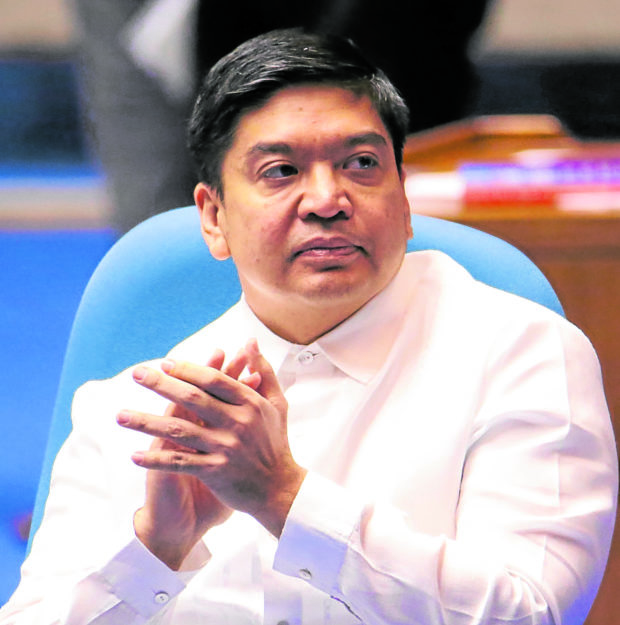
This July 15, 2020, photo shows Camarines Sur Rep. LRay Villafuerte Jr. (File photo by /NIÑO JESUS ORBETA / Philippine Daily Inquirer)
MANILA, Philippines — Camarines Sur 2nd District Rep. LRay Villafuerte has called on their colleagues from the Senate to act on bills for the rightsizing of government functions when congressional sessions resume on January 22.
Villafuerte said the passage of such measures would be good for the government’s resources.
The congressman also said that House Bill No. 7240 or the proposed National Government Rightsizing Act, which was approved on the third and final reading by the lower chamber last March 14, will lead to an efficient use of state resources as redundant or overlapping functions and personnel would be addressed.
Congress went on a holiday break since December 16, which means bills can only be tackled at the plenary once sessions resume on January 22.
“(I call) on senators to act on their counterpart measure when the 19th Congress reopens on Jan. 22 after its five-week yearend break,” Villafuerte said.
“The Philippines has about 1.7 million workers – according to 2022 data of the Civil Service Commission (CSC) – who are spread across 187 government agencies and GOCCs that have functions that either overlap or are redundant. As Personnel Services take almost 30% of the national budget annually, rightsizing the government will surely lead to the appropriate utilization of the State’s financial resources,” he added.
Five proposed measures about rightsizing are currently filed in the Senate. These are Senate Bill Nos. 2502, 2126, 1779, 1474, and 890 – which are all pending before the chamber’s committee on civil service, government reorganization and professional regulation.
According to Villafuerte, the House’s version of the bill would be a big help to the government if enacted, as it cuts down excessive expenses allocated to employees doing similar work while ensuring that proper exemptions are set in place so that teachers, police officers, military personnel, and healthcare service providers who are in public service would not be affected.
He also noted that the bill allows Congress, the Judiciary, state universities and colleges (SUCs), Office of the Ombudsman and other Constitutional Commissions, and local government units (LGUs) to make and implement their own rightsizing plans.
“[…] The bill upholds Section 27, Article II of the 1987 Constitution, which declares that ‘The State shall maintain honesty and integrity in the public service and take positive and effective measures against graft and corruption’,” he said.
“Towards this constitutional objective, HB 7240 proposes ‘to rationalize the operations of offices from and among various government offices having related functions, through streamlining the positions of offices in the government bureaucracy’,” he added.
Proposals to rightsize government functions came just days after President Ferdinand Marcos Jr. took office in June 2022, as a way to save funds and allocate these instead to basic services.
Rightsizing has led to the abolition of the Presidential Anti-Corruption Commission (PACC) and the Office of the Cabinet Secretary as there are already existing agencies with similar functions.
Under the rightsizing program, personnel of abolished offices would either be given the same tasks under a different, consolidated agency, or would be assigned new roles in government – which means no layoffs would occur.
This in turn saves government funds because the State no longer needs to fund salaries of new government workers because employees can take on other vacant roles after rightsizing.